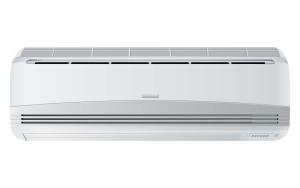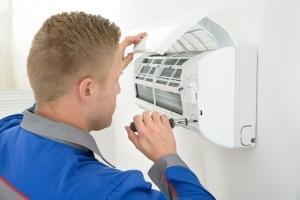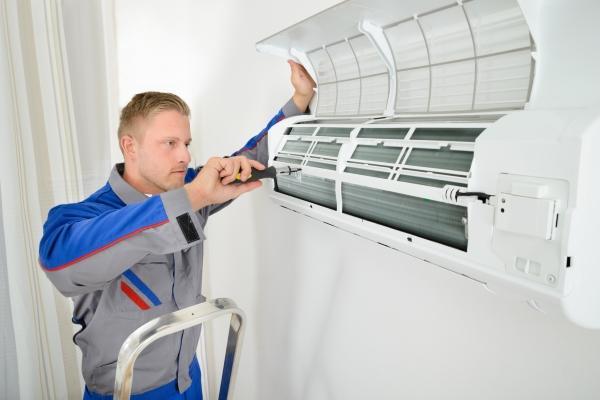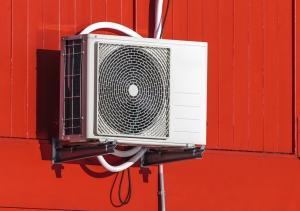How to clean air conditioners
Post from EditorialsSmall operations on the body, filters, exchangers, condensate pan and external drive to always have clean air and maintain the efficiency of the system.
Why cleaning the air conditioners?
 The regular and thorough cleaning of air conditioners brings indisputable advantages:
The regular and thorough cleaning of air conditioners brings indisputable advantages:
- You can breathe clean air;
- The efficiency of avoiding unnecessary energy input remains unchanged;
- It prevents unpleasant sudden blocks.
They are all good reasons to deepen the discussion.
As we now know conditioners consist of two basic parts: the split inside the home and external drive. Both are regularly maintained. In particular, for internal split we can identify some elements readily identifiable to clean: the external body, the filters, the heat exchanger and the condensate collection pan.
How to clean the air conditioners: the body
 First of all always detach the power supply.
First of all always detach the power supply.
Then disassembles the body of the internal split and remove sediments deposited inside. Coarse dirt can be removed with a vacuum cleaner, the finest one is instead washed with mild soap and water.
For final cleaning you can pass a cloth moistened with a spray specific for germicidal action.
How to clean air conditioners filters
The air conditioner may be equipped with activated carbon filters, which serve to retain pollen and odors.
After removing any activated carbon filters, they are removed and polish even the dust filters, which will be recognizable after removing the body: they are comprised of a frame which is anchored a network of fine strands of nylon.
Also the dust filters is useful to wash with mild soap and water, to be rinsed several times. The filters should be put to dry air, away from excessive heat (eg best to avoid direct sunlight). Once dry, with a brush you pass the same germicidal product used for the bodywork.
How to clean the air conditioners: the heat exchanger and the drain pan
For the cleaning of the heat exchanger there are specific products, generally more foamy than those used for bodywork and filters. Since the heat exchanger for small cracks, also here it will be useful to distribute the product with a brush.
Brushed dirt from the exchanger will settle on the collecting tray of condensate, which will also clean.
It is preferable to spray inside the tank the same product used to the heat exchanger, then pouring water on the cracks in the heat exchanger.
Water will flow into the cassette and turn away the dirt in it flowed through the drain condensate.
When the operations of cleaning, will lose out to position the filters in nylon and any activated carbon filters, substituting for the latter the exhausted pieces.
How to clean the air conditioners: the outdoor unit
The number of filters present on the casing of outdoor unit of the plant easily become clogged with dirt of all kinds, dust, pollen and leaves. The obstructions decrease the heat exchange surface and consequently the efficiency of the air conditioner. We must therefore carefully clean all the covers with a compressor, or with a brush, then passing a damp cloth.  During this cleaning is always good to check the external piping exposed to sunlight, which tend to deteriorate because the external insulation dries and falls off. This entails a decrease in the efficiency of the machine. When necessary will then also restore the ruined insulation.
During this cleaning is always good to check the external piping exposed to sunlight, which tend to deteriorate because the external insulation dries and falls off. This entails a decrease in the efficiency of the machine. When necessary will then also restore the ruined insulation.
If the air conditioning is only used for summer cooling, during the months of inactivity it will be useful to protect the outdoor unit from external agents (rain, snow, dirt and resin) covering it with a tarp. There are special towels for the protection of outdoor units in standard sizes readily available.
Ignition after cleaning
Finish cleaning, restoring electricity and lights up the air conditioner for about an hour without staying in the room and ensuring a constant ventilation. This is because in the first minutes sanitizing solutions used will disperse into the air and may cause discomfort to allergy sufferers.
Advanced operations for the maintenance of air conditioners
Not all maintenance of air conditioners can be made by yourself because sometimes are necessary tools. I refer for example to the periodic testing of the gas content in the system, carried out by measuring the temperature supplied by the air conditioner using an electronic thermometer. In these cases it is advisable to turn to specialized companies. In the example shown, following an investigation of a low gas content, the company will proceed with a topping.
80837 REGISTERED USERS










